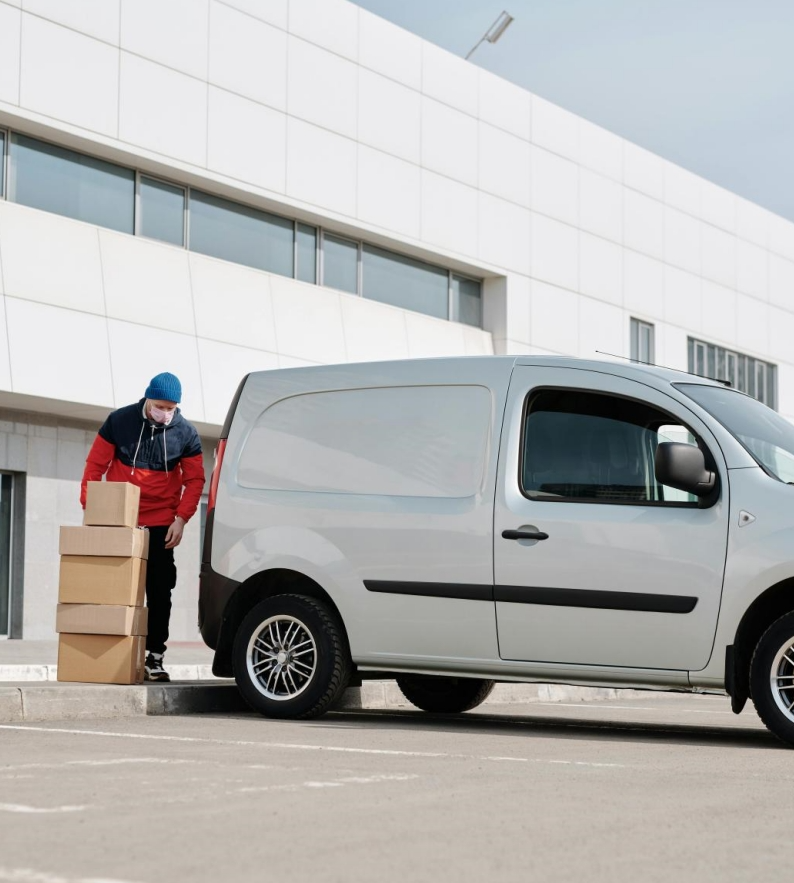
Quando se trata de entrega de destino, a G-Billion Logistics oferece uma gama de serviços que nos diferenciam da concorrência. Nossa equipe de especialistas está aqui para fornecer o suporte e a orientação que você precisa para garantir um envio tranquilo e bem-sucedido, independentemente do tamanho ou complexidade da sua carga. Com nossos serviços de entrega de destino, você pode ter a certeza de que seus produtos chegarão ao seu destino a tempo e em perfeitas condições. Escolha a G-Billion Logistics para suas necessidades de entrega de destino e experimente a diferença.

Nosso objetivo máximo na G-Billion Logistics é ajudá-lo a maximizar sua capacidade de envio. Sabemos que é fundamental distribuir bens onde são mais necessários. Para isso, montamos uma equipe de profissionais que entendem exatamente o que precisa ser feito para que qualquer remessa chegue pontualmente e intacta. Nossos serviços são tão diversos que não há nada que não possamos lidar - basta nos dar uma chance!

Não se pode ter um negócio bem sucedido sem uma entrega sólida. Temos o que precisas na G-Billion Logistics, e mais. A nossa gama de soluções de entrega de destino é perfeita para transformar a sua empresa. A nossa equipa de profissionais tem experiência e a nossa tecnologia é de ponta. Tudo isto garante que os seus carregamentos cheguem a tempo e em perfeita forma. O que significa isso para si? Significa que podes dedicar mais atenção ao teu negócio em vez de te preocupar com os problemas de transporte.

Na G-Billion Logistics, compreendemos que a fase final do processo de envio é tão importante quanto a primeira. Por isso, apresentamos serviços de entrega de destino que visam oferecer transporte ininterrupto, eficaz e fiável de mercadorias até o final da sua viagem. Mostramos a nossa dedicação à qualidade em todos os pontos do tempo desde que a sua carga chega até chegar ao seu destinatário.

A entrega não é apenas um serviço, mas um vício na excelência da entrega. Fazer o esforço extra na G-Billion Logistics significa que oferecemos serviços globais e garantimos que a sua remessa chegue a tempo e em boa ordem. Além disso, a nossa equipa vai além do que pode esperar para o ajudar a expandir o seu negócio, enquanto trabalha arduamente para satisfazer todas as suas expectativas.

SHENZHEN G-Billion Logistics LTD. (também conhecida como "GBL"), estabelecida em Shenzhen em 2023, é uma plataforma abrangente de serviços de cadeia de suprimentos de exportação transfronteiriça. Com um sistema profundamente digitalizado desenvolvido independentemente, que integra logística, finanças, controle de riscos e colaboração OA, a GBL possui transporte aéreo de qualidade, recursos maduros de despacho e uma ampla gama de categorias de produtos.
A GBL se posiciona como "Criando a Principal Plataforma de Serviços de Cadeia de Suprimentos de Exportação Transfronteiriça da China", utilizando a tecnologia da informação e a digitalização como principais impulsionadores. Ela constrói um modelo 4+1, com quatro setores principais de negócios – logística transfronteiriça, comércio eletrônico transfronteiriço, armazéns em nuvem no exterior e finanças de cadeia de suprimentos – além de uma plataforma totalmente digitalizada, focada em fortalecer a manufatura chinesa para expansão internacional.
Temos uma rede global de parceiros e agentes que podem oferecer-lhe soluções logísticas confiáveis e custo-benefício. Seja transporte aéreo, marítimo, terrestre ou multimodal, podemos cuidar disso para você.
Temos uma equipe profissional de especialistas que pode oferecer-lhe serviços personalizados e flexíveis. Podemos projetar e implementar planos logísticos que atendem às suas necessidades específicas, como gestão de estoque, armazenagem, distribuição, despacho aduaneiro e mais.
Temos uma plataforma tecnológica de ponta que pode aumentar sua visibilidade e controle sobre a cadeia de suprimentos. Você pode rastrear e acompanhar seus envios em tempo real, acessar dados e relatórios e se comunicar conosco a qualquer momento, de qualquer lugar.
Temos uma cultura orientada para o cliente que valoriza sua satisfação e feedback. Estamos comprometidos em fornecer serviços de alta qualidade e responsivos, e estamos sempre prontos para resolver quaisquer problemas ou desafios que possam surgir.
A G-Billion Logistics oferece uma gama abrangente de serviços de entrega de destino, incluindo transporte transfronteiriço, gestão de logística e soluções personalizadas para atender às necessidades únicas de nossos clientes.
Na G-Billion Logistics, empregamos uma equipa de profissionais experientes que se dedicam a fornecer o mais alto nível de serviço e a garantir que os seus embarques cheguem ao seu destino a tempo e em perfeitas condições.
Sim, a G-Billion Logistics tem a experiência e os recursos para lidar com cargas grandes ou volumosas para entrega no destino. A nossa equipa de peritos está aqui para lhe dar o apoio e orientação necessários para garantir um transporte suave e bem sucedido.
Usar a G-Billion Logistics para entrega de destino oferece uma série de benefícios, incluindo entrega oportuna, manuseio especializado e soluções personalizadas para atender às necessidades únicas de nossos clientes.
Na G-Billion Logistics, levamos a sério a segurança da sua carga. Empregamos medidas de segurança de última geração e protocolos de controlo de qualidade rigorosos para garantir a segurança da sua carga durante a entrega ao destino.


